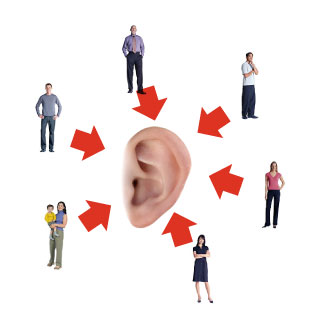Meeting the Seventh-day Adventists
 Guest Post by Kim L. Ranger
Guest Post by Kim L. Ranger
Kim Ranger is a Quaker and member of Grand Rapids Michigan Meeting. She has recently completed a two-year sojourn with Seventh-day Adventists. She is a senior librarian of Arts and Humanities at Grand Valley State University. This article appeared in the September 2009 Friends Journal.
This peace is an abridgment of the article rather than a review. It is important to note that Kim’s comments reflect involvement with a conservative Adventist community. It is impossible to determine from her experience whether or not she would be more or less attracted to an Adventist community in which traditional shibboleths are not so universally agreed-upon.
Five years ago, a spiritual friend and I visited a couple of the Seventh-day Adventist churches, where Adventism piqued my curiosity. I had been a seeker all my life, open to other traditions. As a Liberal Quaker, I was initially appalled by my continuing attraction to the fundamentalist and evangelical Adventism, but eventually I realized that this was a call from God to open up to a different way of believing, worshiping, and living. I began to read about Adventism, study the Bible, participate in Sabbath School each week, and occasionally attended the services for worship.
Before my study with the Adventists, I had considered myself to be non-theist who believed that "God" was the same as "the universe". During my time in the SDA Church, I went through an overwhelming conversion. God spoke to my heart, asking, "Why do you deny me?" and came to call myself Christian. I began to observe the Sabbath in the way Adventists do, and I found that devoting a day to rest and spiritual reading after the workweek was refreshing.
The commonalities I've found with Adventists that made it easy for me to worship in harmony with them included the fact that truth, integrity, simplicity, and racial equality were held to be vital, and all people were to be treated with respect; the conviction that each person could access God directly, without the need for intermediaries; and their belief in peace (Adventists refer to themselves as 'noncombatants'. The music of both Sabbath School and worship often moved me to tears of joy.
My own beliefs were wildly different from those of the Adventists. Some of the conflicting concerns involved the form of worship and a fundamentalist reading of the Bible in which evolution is viewed as evil. (SDA’s believe in a literal six-day creation, the rightness of 'creation science', and a 'young earth'.) Their standardized system of belief and the authoritative prophecies of Ellen G. White were also problematic, as were not wearing jewelry and not drinking alcoholic beverages.
However, the largest issue for me was their stance on homosexuality. In the SDA Church, gays and lesbians who were sexually active were subject to church discipline, including the potential loss of their membership. Adventists believe that the Bible condemned same-sex relationships as sinful perversion.
Sacraments such as baptism and foot-washing, dressing up for church, and beliefs such as employing a paid clergy and allowing only men to be pastors made me uncomfortable and never got easier for me to accept. I would not be willing to be baptized with water, nor would I participate in communion, finding these antithetical to basic Quaker practice.
I no longer experience the heart-wrenching loneliness I felt when trying to live by SDA rules that didn't come from my experience of God and Christ. Ultimately, it was the early Quaker testimonies that sustained me.
Although I did not find an opening for a joint venture between the Adventists and Quakers, my experience with the SDA Church opened my heart, helped me to be more adaptable, and provided me a community when I needed it most. I learned to keep a time and space sacred. I learned to trust more and to bring up difficult matters with more courage. This study with a worship group so different from my own certainly led me to a different understanding of what it means to be a Quaker, and I'm grateful I had the opportunity to do so as part of a recorded ministry. Now I am glad to share the results of my experience with others.
____________________________________________
©2009 Friends Publishing Corporation.
Reprinted with permission.
To subscribe: www.friendsjournal.org








